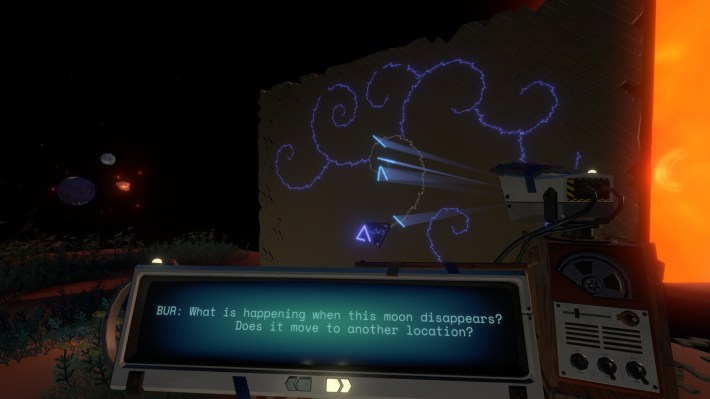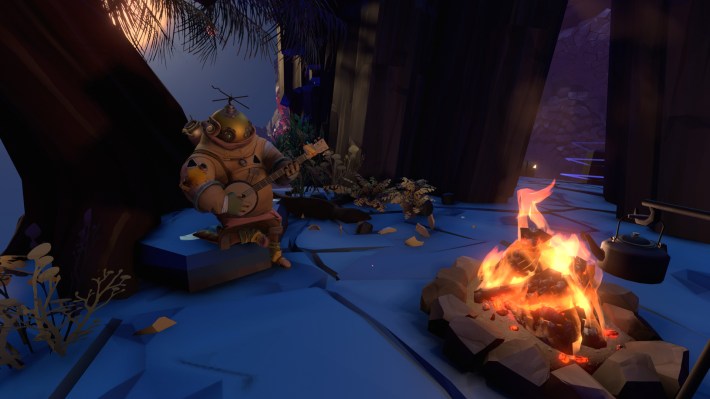In 2004, the now prolific comic book author Kieron Gillen wrote an essay about video games writing. It was called “The New Games Journalism.” At this point it has been so long, and the essay has been celebrated and denigrated from every possible angle, that it will probably embarrass him to see that sentence, but the essay was a manifesto, calling for writers in games journalism to write about video games in personal, emotional ways. So why does one of the editors of the new anthology Critical Hits from Graywolf Press seem to think that there is no home for writing about video games from the personal, emotional perspective?
The anthology, which came out last week, drew attention over the weekend for an interview at Electric Lit with its editors, literary writers Carmen Maria Machado and J. Robert Lennon.
“My editor, Ethan, made some comment about it: ‘has there ever been a video game anthology? Writers writing about video games?’” Machado said, a quote all the more maddening because there is literally an anthology about video games with the exact same title. “And then at some point people started following up more earnestly. They told us, ‘Hey, we actually looked and like there isn’t really anything like it, would you guys wanna co-edit one?’”

“My interest in games always felt more private, maybe because no one in authority ever rewarded me for talking about them,” Lennon says in this same interview, tellingly. “Reading these essays made me feel, for the first time, like part of a community of people thinking and feeling things about the art form, and has made playing games seem more like a communal activity, even when I’m doing it alone.”
The interview seems to gloss over the fact that such a community already exists, and has existed for years. Gillen’s essay didn’t invent it so much as call it by its name — his essay is probably responsible for my entire career (a sentence that will also probably embarrass him). The idea of writing about video games as they are played, as literary non-fiction, as emotional experiences that radiate outward into the rest of my life — it was so intoxicating that I embarked on the practice almost as soon as I graduated from college.
“New Games Journalism … argues that the worth of a video game lies not in the game, but in the gamer,” Gillen wrote. “What a gamer feels and thinks as this alien construct takes over all their sensory inputs is what’s interesting here, not just the mechanics of how it got there. Games have always been digital hallucinogens – but games journalism has been like chemistry, discussing the binding reactions to brain sites. What I’m suggesting says what it feels like as the chemical kicks in and reality is remixed around you.”
A lot of my favorite games writing is just gone — disappeared from an internet that both “never forgets” and is as transient as a passing breeze.
At that time, I saw myself as part of a cohort of writers attempting, amidst a slew of harassment, to show that games are not only art, but that they can and should be written about as if they are art, as if they enrich and impact our lives. Jury’s out on how well we all did: Just as Gillen describes in his 2004 essay, the industry is in a shambles, at mercy to the “money men” who just want to make a buck. Not much has changed since that time — including the idea that writing like this does not exist.
To be fair to Machado and Lennon, it is possible that they weren’t familiar with Gillen’s landmark essay. For all intents and purposes, “New Games Journalism” no longer exists — the blog where Gillen originally published his manifesto no longer exists and the essay is only accessible via the Internet Archive. This is also true of the essay Gillen references in his blog, the inspiration for it: Ian Shanahan’s seminal essay about dueling a fellow player in Jedi Knight II: Jedi Outcast who demanded he submit, “Bow Nigger.” I also remember the moment I read “Bow Nigger” for the first time. Now it is almost impossible to read it at all, unless you know exactly what you’re looking for.
A lot of my favorite games writing is just gone — disappeared from an internet that both “never forgets” and is as transient as a passing breeze. My favorite essay about Bloodborne, called “Gynohorror,” was deleted by its author and is impossible to search for online unless you are okay with sifting through mountains of pornography. Since Gillen was lamenting the closure of games magazines and the rise of video game websites in 2004, dozens and dozens of such websites have been born and then died ingloriously. Just today, ReedPop announced that it would be selling its suite of gaming websites, including RockPaperShotgun, a site that Gillen co-founded. Like my friend and colleague Harper Jay once wrote about, these are all cyclical discourses in video games, an industry with lots of history but no real desire to preserve it or look backwards.

“We have a discussion about inclusion, one way or another,” she writes. “We achieve some level of ‘awareness,’ or something. But then the discussion repeats.” It isn’t surprising, then, that Lennon and Machado seem to think they have invented New Games Journalism.
In many ways reading the interview in Electric Lit about Critical Hits makes me feel like an abject failure. In a very literal sense, what have I done with the entirety of my adult life, the ten years of time that I’ve devoted to writing about video games in a personal, literary way, if someone like Lennon does not feel that he is a part of this community — nor I a part of his? What was the point of all that work? Is it all, as I suspect on the low end of my depression cycle, just a complete waste of time?
On the other hand, it’s infuriating to read, like I’m watching these two writers come into my apartment and put their muddy shoes on all the furniture. Where were you for all those years, when the merits of writing about games in this exact way were being debated day in and day out? Where do you live, Lennon, that you believe that an essay about “playing The Last of Us while pondering the question of parenthood” would not have found a home in any major publication on Earth? Scholar Mattie Brice wrote about “the Daddification of Games” in 2013, in reference in The Last of Us and similar games; my friend and colleague Maddy Myers wrote about the subject of parenthood and The Last of Us in the same year; Kieth Stuart wrote on this topic in The Guardian in the same year; an essay called “How Games Have Changed My Perspective on Parenthood” was published in 2018. There is a home for this writing, but only if you’re willing to rub shoulders with the writers that you do not believe yourself to be in a community with, I suppose.
It’s just hard to want to read any more personal essays about video games after twenty years of practice.
The authors collected in Critical Hits are all wonderful people whose work I admire, in a frustrating turn of fate. In particular, I am looking forward to reading Nana Kwame Adjei-Brenyah’s essay about Disco Elysium, using all my intellectual prowess to power through my inherent dislike of personal essays about Disco Elysium because I enjoyed Adjei-Brenyah’s debut novel so much. Some of these authors are people I know in real life, like Tony Tulathimutte, who has been helping my husband query a book. I have no doubt that these essays are all good writing from good writers, engaging in their subject matter in good faith. It’s just hard to want to read any more personal essays about video games after twenty years of practice.
My question to Graywolf Press, Machado and Lennon is: does your book offer me anything better or more vital than “Bow Nigger” was when I first read it? As much as I want to read a writer like Adjei-Brenyah write about video games, I’m not sure what he could possibly say that I haven’t already read. Rather than seeming to claim to invent a genre that already exists, the editors of Critical Hits feel late to a party that’s already produced decades of critical and literary work. One day, I hope to see an anthology of the works like “The New Games Journalism” or “Bow Nigger,” so that no one can claim this kind of writing has never existed.
Nov 27, 6:30pm: The original article misstated the name of the author behind "Bow Nigger"


